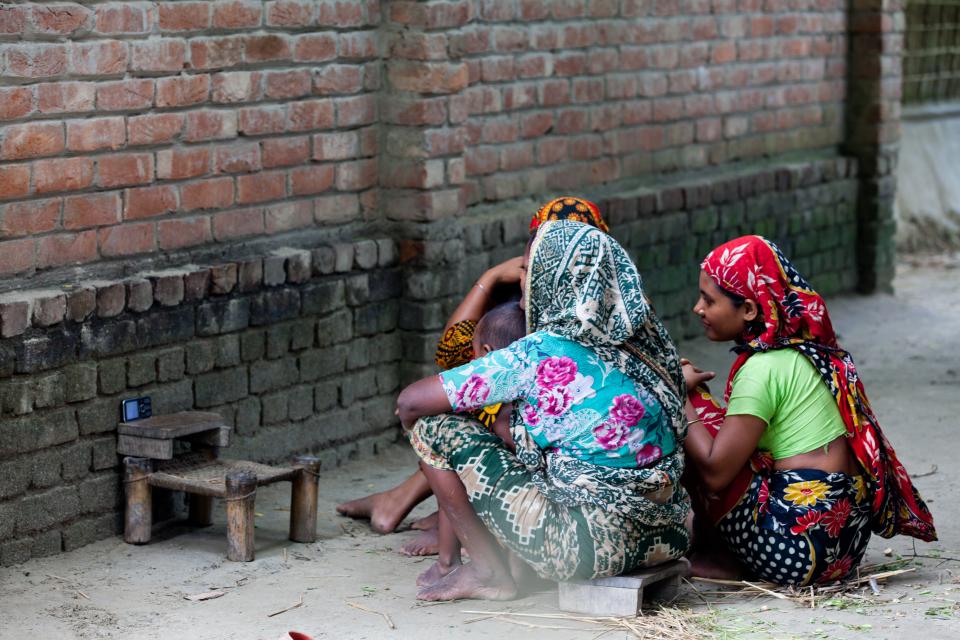- عربي
- 中文
- English
- Français
- Русский
- Español
Safer Internet Day: Guarantee children’s rights and dignity online, say UN experts

GENEVA (11 February 2020) – States must urgently develop comprehensive strategies to prevent child sexual abuse online and to address both the opportunities and the risks that the Internet presents for children, UN human rights experts* said in a statement marking Safer Internet Day on 11 February 2020.
The UN Special Rapporteur on the sale and sexual exploitation of children, Maud de Boer-Buquicchio, noted with concern the unprecedented spike in reports of child sexual abuse material online, the scale and complexity of the problem and the enormous harm it is causing.
“By virtue of their commitments under several human rights treaties, States have the primary responsibility to establish a comprehensive legal framework and strategies to protect children in the digital environment, encompassing the early detection of cases, appropriate services, child-friendly reporting mechanisms and effective remedies,” the experts said. “Victim-centred laws and policies are of paramount importance and perpetrators must be held to account.
“States must ensure that the IT industry has mechanisms to detect, report and block child sexual exploitation material. They must establish tools to monitor the hosting of child abuse materials within their jurisdictions. They must also ensure that the private sector is effectively collaborating with law enforcement, to guarantee that their networks and services are not misused for criminal purposes and to gather evidence for criminal proceedings.”
De Boer-Buquicchio called for more investments from the IT industry, to better engage and take its share of the responsibility in the fight against child sexual abuse online by providing resources and technical expertise. Financial coalitions against child pornography have had a significant impact on detecting transactions related to child sexual exploitation and must be expanded, she said.
As digital technologies also provide the secrecy, anonymity and opacity to generate, host and consume child sexual abuse material, the Internet industry is uniquely placed to act as a conduit for reporting suspicions, blocking inappropriate material, and reinforcing key safety messages.“Prevention must be prioritized, including through education programmes and awareness-raising campaigns targeting children,” the expertsurged.
“We need to do more and act together, better and faster, to end violence against children online by 2030, ensuring that digital media are not used to perpetrate crimes against children. In tackling this issue, children themselves are among the most important actors. They must be involved and empowered to act as drivers of change, with particular attention to the most vulnerable, to ensure no child is left behind,” said Najat Maalla M’jid, UN Special Representative of the Secretary-General on violence against children.
“It is the responsibility of both the State and the private sector to educate children and teenagers about safety on social media platforms and the Internet; to protect their privacy online; and to explain the risks of sharing intimate images,” said Joseph Cannataci, UN Special Rapporteur on the right to privacy.
The experts noted that the Internet has enormous potential to support the realisation of children’s right to freedom of expression, including to seek, receive and impart information.
“We need to embrace technology through a child-centred perspective by prompting an empowering, inclusive and safe digital agenda for children. We must integrate the issue of new technologies and their impact on children’s rights into existing initiatives and processes, including the Decade of Action to deliver the Sustainable Development Goals by 2030,” Maud de Boer-Buquicchio concluded.
ENDS
*The experts: Ms. Maud de Boer-Buquicchio (Netherlands) was appointed as UN Special Rapporteur on sale and sexual exploitation of children by the UN Human Rights Council in May 2014; Mr. Joseph Cannataci (Malta) was appointed as the first Special Rapporteur on the right to privacy in July 2015; Ms. Najat Maalla M’jid (Morocco) took up her role as UN Special Representative of the Secretary-General on Violence against Children in July 2019.
The Special Rapporteurs are part of what is known as the Special Procedures of the Human Rights Council. Special Procedures, the largest body of independent experts in the UN Human Rights system, is the general name of the Council's independent fact-finding and monitoring mechanisms that address either specific country situations or thematic issues in all parts of the world. Special Procedures experts work on a voluntary basis; they are not UN staff and do not receive a salary for their work. They are independent from any government or organisation and serve in their individual capacity.
For additional information and media requests, please contact: Shushan Khachyan (+41 22 917 9984 / skhachyan@ohchr.org), Elena Wasylew (+41 22 917 9720 / ewasylew@ohchr.org) or write to srsaleofchildren@ohchr.org.
For media inquiries related to the UN Special Representative of the Secretary-General on violence against children, please contact: Miguel Caldeira (+1 917 367 6132/ caldeira1@un.org).
For media inquiries related to other UN independent experts: The Media Unit (+ 41 22 928 9855 / mediaconsultant2@ohchr.org)
Concerned about the world we live in?
Then STAND UP for someone’s rights today.
#Standup4humanrights

